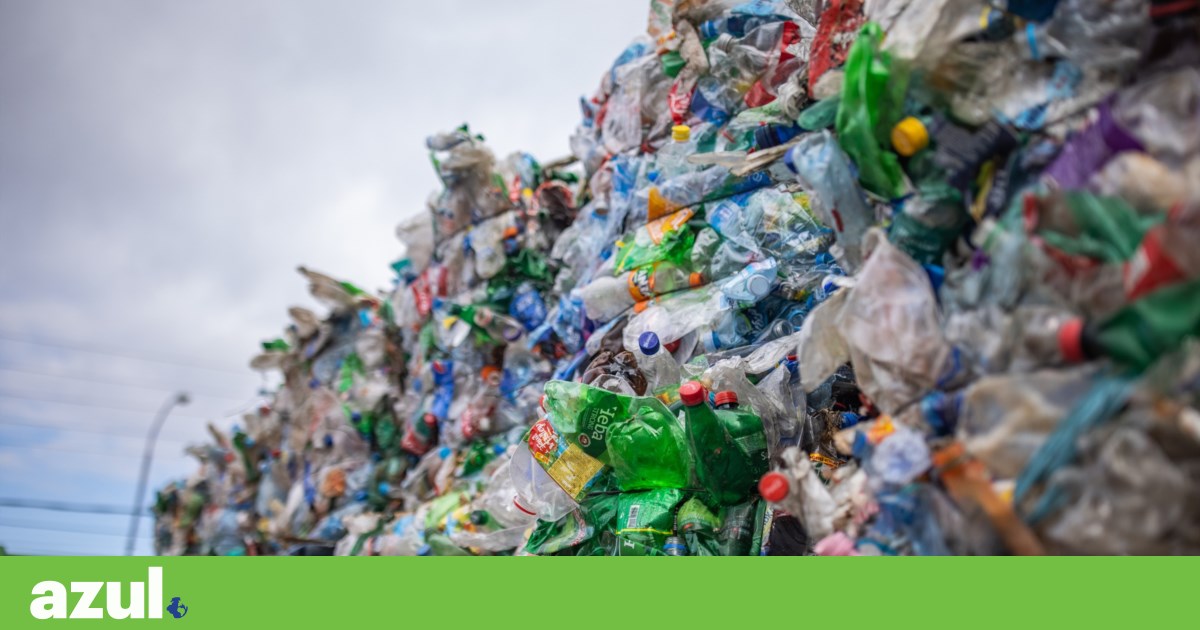Os plastic There are a number of chemicals that can affect human health and ecosystems, but an analysis using a new database that gathers results from more than 370 studies shows that many of these compounds escape us – especially in recycled plastics.
Among the more than 16 thousand chemical substances related to plasticmore than 4,200 have already been identified that are considered hazardous and may be released during the life cycle of the material. However, the researchers report in the study published in the scientific journal Environmental Science and Technology Lettersinformation on the identification, presence and concentration of chemicals in products and waste streams is scattered – or even unknown.
Food Packaging Forum Chief Science Officer Helene Wiesinger, lead author of the study, explains that “many scientific efforts focus only on whether or not plastics comply with regulations, rather than ensuring that they are really safe. ” ETH Zürich in a statement, as “there are many chemicals in plastic that are not yet sufficiently regulated, which means that risks may go unnoticed. “
protection circular economy
One of the remaining warnings concerns recycled materials. The researchers write that “comprehensive studies” on the contamination of recycled plastics “continue to be limited”, despite the fact that some chemical substances not only inhibit on the recycling process, but also pose a risk in the use of reusable materials.
A database LitChemPlastwhich brings together studies that included substances measured in more than 47 thousand samples of plastic products, showing that, due to inadequate control measures, plastic recycling often leading to contamination with hazardous materials.
One of the dangers of recycling long-term plastics, which have been produced a long time ago, is that they contain substances that have since been banned (legacy chemicals).
Another focus of concern that researchers say is not being taken into account is recycling between sectors, that is, the use of granules (recycled plastic) for other types of products. For example, studies show that brominated flame retardants (BRF) in toys made from waste electronic equipment.
What the eyes do not see
One of the conclusions of the researchers who combined the studies of LitChemPlast that there are many more focused analyzes (targeted), with a narrow focus on more known hazardous chemicals, rather than untargeted screening – meaning in most cases you’ll only find what you’re specifically looking for.
Collecting all the studies in this new database could help identify so-called NIAS, dangerous chemicals that are accidentally added to plastics (for example, due to conditions of use) . Scientists are appealing here for more information about plastics during their life cycle, to understand the stages in which these chemicals are added to the products.
The article also notes the importance of Material Flow Analysis, “an industrial ecology method for extracting relevant information about the presence, destination, transport and management of materials within a system “.
transparency
The database LitChemPlastwhich is part of the database set project PlastChemwhich was launched earlier this year, is intended to be a starting point for researchers, regulators and practitioners to identify chemicals of interest to manage and trace plastic pollution to its source.
The researchers explain that there is also a need for more rigor and transparency in the registration of chemical substances that are identified in the production and recycling processes of plastic.
“The transparency of chemicals in plastics is essential to ensure safer material cycles, to protect human and environmental health and promote a sustainable circular economy”, affirms Zhanyun Wang, a scientist at the Swiss Federal Laboratory for Materials Science and Technology (Empa), one of the research studies. authors.
Finally, according to the scientific article, the focus should be on developing “quick and simple control mechanisms”, to identify these chemicals more easily.
2024-10-30 19:04:00
#chemicals #plastic #lose #recycled #plastics

